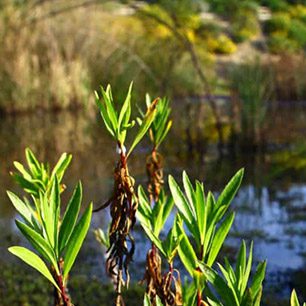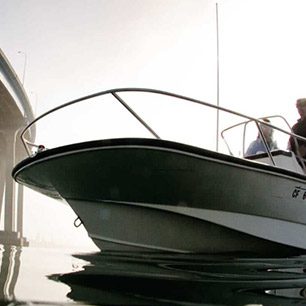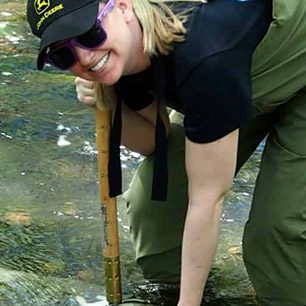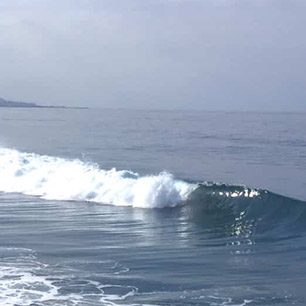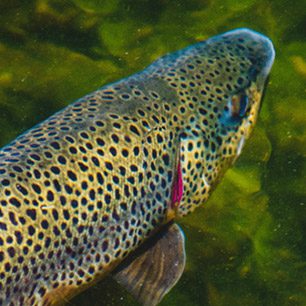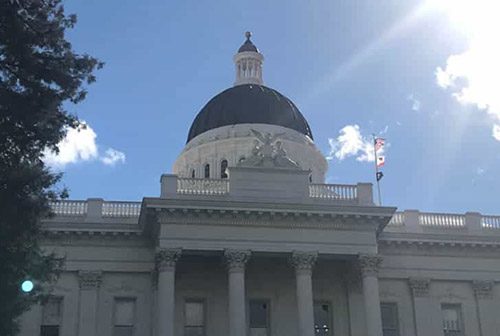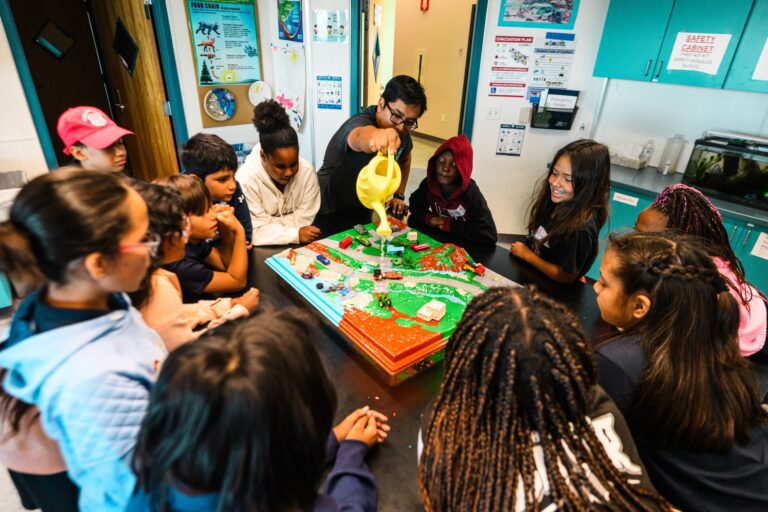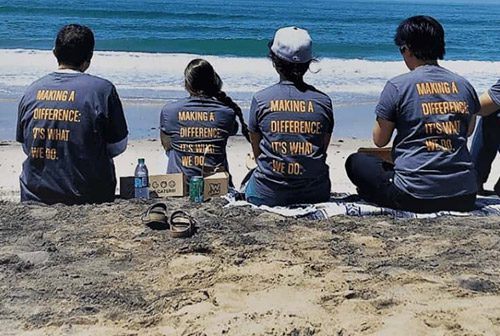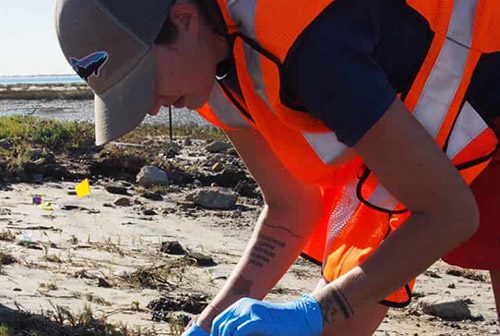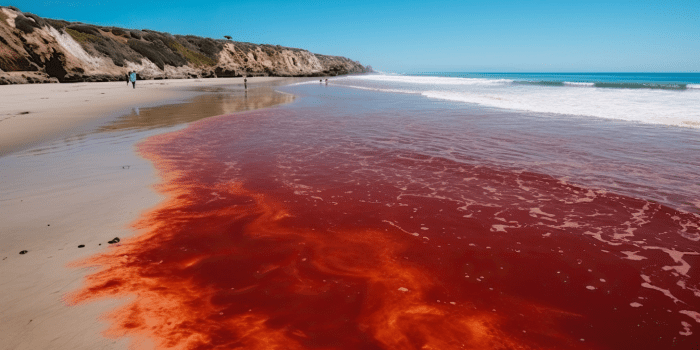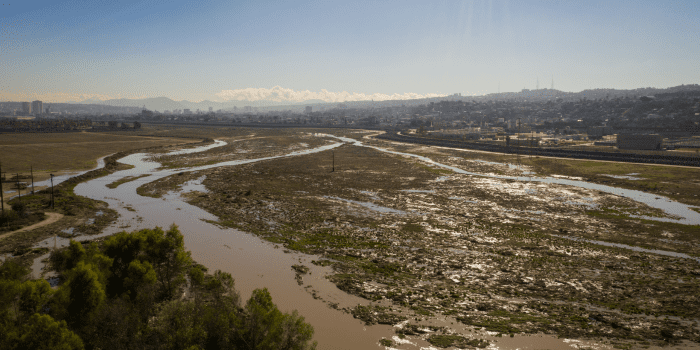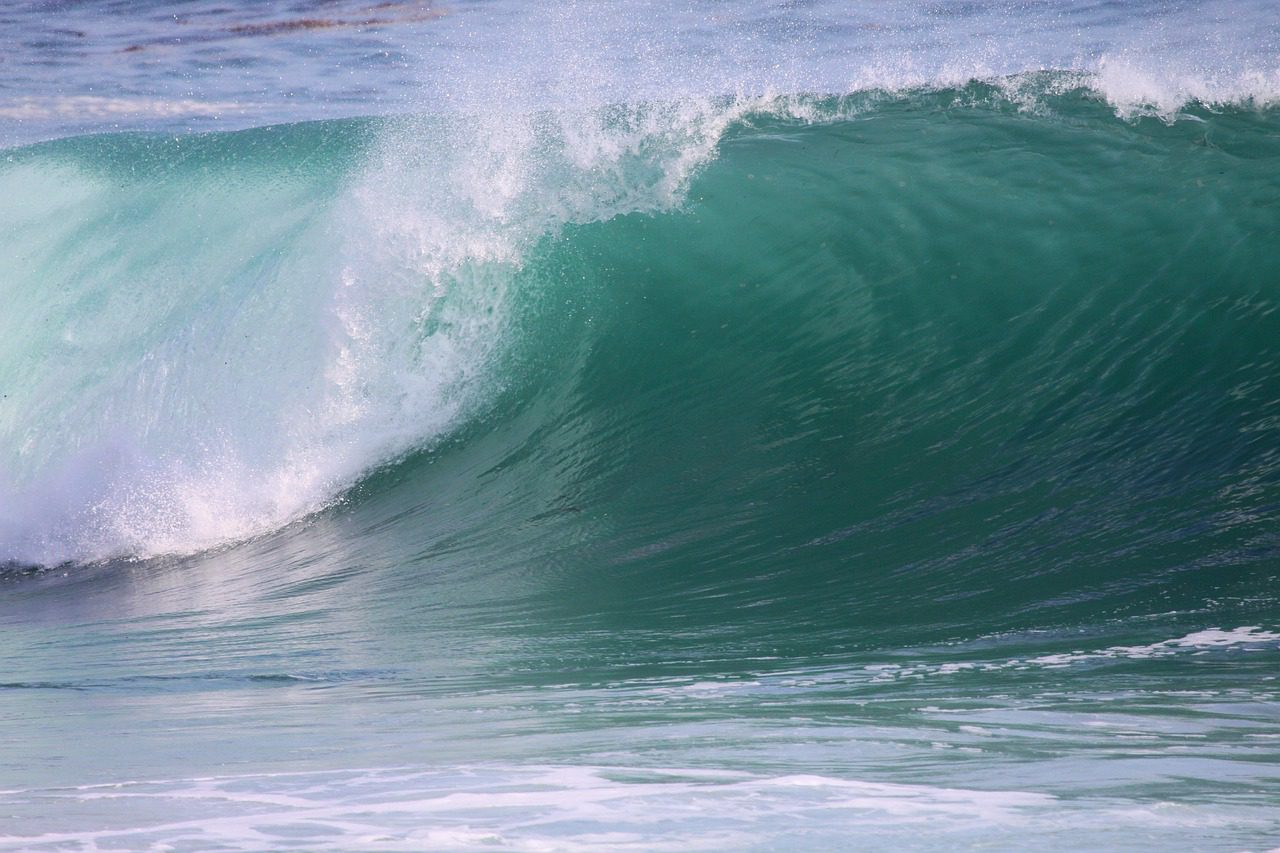Significant portion of beach litter may not come from beachgoers
SAN DIEGO – May 15, 2017 – Today, San Diego Coastkeeper and Surfrider Foundation San Diego County Chapter released data about trash collected by more than 6,500 volunteers at San DiegoCounty beach cleanups in 2016. 80 percent of all trash removed contained plastic, with cigarettes containing plastic foam filters remaining one of the most common types of trash found. Scientists say plastic debris is particularly harmful to marine life, but beachgoers aren’t the only ones to blame for the litter.
“Much of the trash we find on the beach is first littered miles away from the coast. It reaches the beach when wind and rain blow trash into our canyons, creeks and storm drains,” says Kristin Kuhn, San Diego Coastkeeper Programs Director. “Small, lightweight plastics are particularly dangerous because they move easily to the coast, are hard to remove and look like food to aquatic and marine life.”
Volunteers with San Diego Coastkeeper and Surfrider Foundation picked up nearly 188,000 pieces of trash last year while tracking the amount, type and weight of trash for end-of-year analysis. Cigarette butts accounted for 32 percent of all trash removed, and remain the most common type of beachlitter. With their plastic foam filters full of toxins, cigarettes also pose a significant pollution threat to San Diego’s waters. Plastic breaks down into smaller pieces over time but never biodegrades, releasing harmful toxins as it does. In addition to the toxins associated with the plastic itself, cigarettes are particularly harmful to San Diego’s marine ecosystems because they leach a number of other toxins – such as arsenic, formaldehyde and heavy metals – into the water.
The beach cleanup volunteers also collected 4,302 fully intact plastic bags during 2016, continuing the trend of slight but consistent decreases in the number of plastic bags found each year. To protect our environment from plastic bag litter, California adopted a single use plastic bag ban late last year. “We look forward to seeing how the bag ban affects the health of our beaches as we continue cleanups this year,” says Kuhn.
La Jolla Shores was the cleanest beach in San Diego County in 2016 with .42 pounds of trash found per person. The dubious award for the dirtiest beach went to Sunset Cliffs, with an average of 5.67 pounds of trash removed per volunteer in 2016. Sunset Cliffs replaced 2015’s dirtiest beach, Fiesta Island.
Community members can help by volunteering at one of the 40 beach cleanups planned for 2017. Find more information about upcoming cleanup days by visiting San Diego Coastkeeper’s event calendar or Surfrider’s event calendar. Surfrider and Coastkeeper ask volunteers to bring their own reusable bags, gloves and water bottles.
###
SAN DIEGO COASTKEEPER: Founded in 1995, San Diego Coastkeeper® protects and restores fishable, swimmable and drinkable waters in San Diego County. Coastkeeper, a member of the Waterkeeper Alliance, is a trademark and service mark licensed by Waterkeeper Alliance, Inc. Visit us at https://www.sdcoastkeeper.org.
SURFRIDER FOUNDATION: The Surfrider Foundation is a grassroots nonprofit environmental organization dedicated to the protection and enjoyment of our world’s oceans, waves and beaches through a powerful activist network. Founded in 1984 by a handful of visionary surfers in Malibu, California, the Surfrider Foundation now maintains over 250,000 supporters, activists and members worldwide. For an overview of the Surfrider Foundation San Diego Chapter’s current campaigns, programs and initiatives visit www.surfridersd.org.

